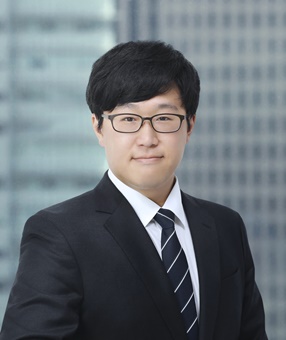In July 2022, following the international trend of supporting the semiconductor industry, the Korean Intellectual Property Office (KIPO) announced that it would focus its efforts on securing core semiconductor patents and that it would include semiconductor patent applications on the list of cases eligible for expedited examination. Accordingly, the Enforcement Decree of the Patent Act and the Utility Model Act were amended on November 1, 2022 to allow semiconductor patents to be eligible for expedited examination.
Specifically, the amended Enforcement Decree adds "patent applications for advanced technology important for the national economy and national competitiveness, such as semiconductors, as set by the Commissioner of the Korean Intellectual Property Office through public notice and expedited examination request period" to the list of cases eligible for expedited examination. Thus, the amendment not only enables semiconductor related patents to be eligible for expedited examination, but also allows KIPO to swiftly add new technologies as it becomes necessary.
Under the amended Enforcement Decree and the Public Notice, expedited examinations for semiconductor patent applications will first be conducted for applications that included a request for expedited examination during the period between November 1, 2022 and October 31, 2023 (KIPO will determine later whether to continue the program). Further, semiconductor patent applications must meet the following conditions to be eligible:
1. The patent application must be directly related to semiconductor technology;
2. The primary Cooperative Patent Classification (CPC) must be related to semiconductors – specifically, the primary CPC must be:
- H01L (semiconductor elements, manufacturing)
- G11C (circuits related to semiconductor devices (drivers))
- G01R (testing semiconductor devices)
- H05K (printed circuit board)
- H01S (semiconductor lasers)
- G03F (photolithography process (related to semiconductor manufacturing))
- C23C (evaporation process (related to semiconductor manufacturing))
- H01J (plasma process (related to semiconductor manufacturing))
- B24B (polishing process (related to semiconductor manufacturing))
- B41J (ink-jet printing (related to semiconductor manufacturing))
- C30B (single-crystal growth (ingot related)); and
3. The patent application must be (i) filed by a company that is producing or preparing to produce products or devices related to semiconductors in Korea, (ii) related to the results of national research and development projects related to semiconductor technology, or (iii) filed by universities or graduate schools specializing in semiconductors (including industry-academic cooperation foundations) pursuant to the Act on Special Measures for the Strengthening and Protection of Competitiveness of National High-Tech Strategic Industry.
In addition to designating semiconductor patents for expedited examination, KIPO also announced that it will (i) utilize inventor information of semiconductor patents to manage and nurture semiconductor-related personnel, (ii) employ retired researchers to conduct higher quality patent examinations, and (iii) analyze Big Data on semiconductor patents to develop future industrial strategies.
As shown below, patents and patent applications in Korea related to semiconductors are increasing yearly:

There is a growing focus on improving the examination system for semiconductor patents. Thus, we will continue to monitor for further developments in Korea's efforts to advance semiconductor patent rights and support the semiconductor industry.
Related Topics





